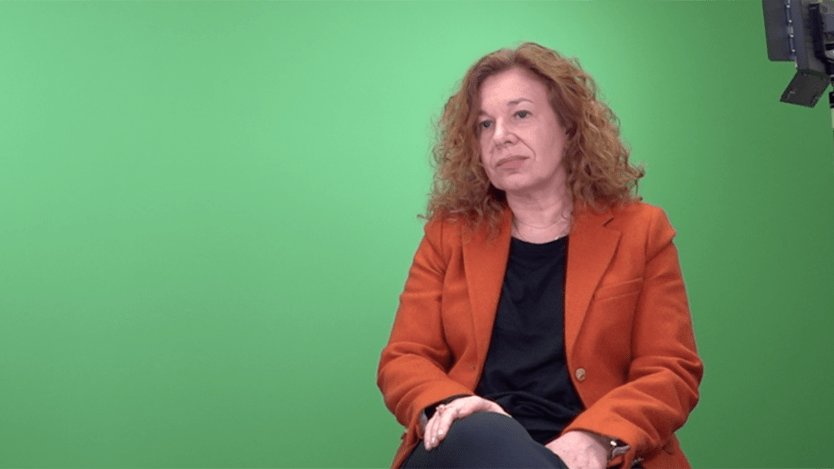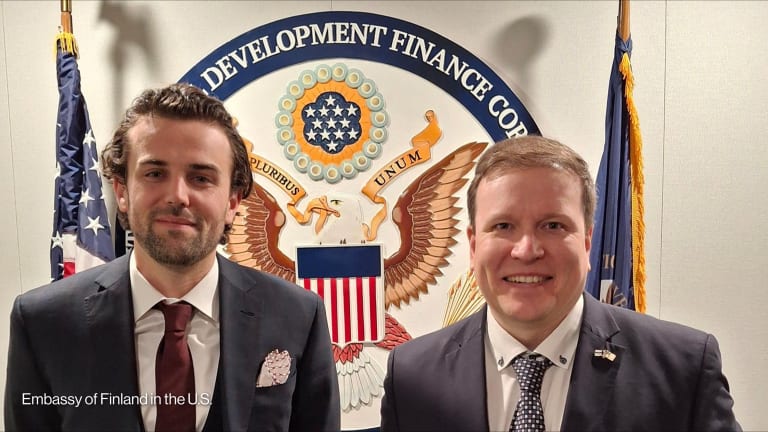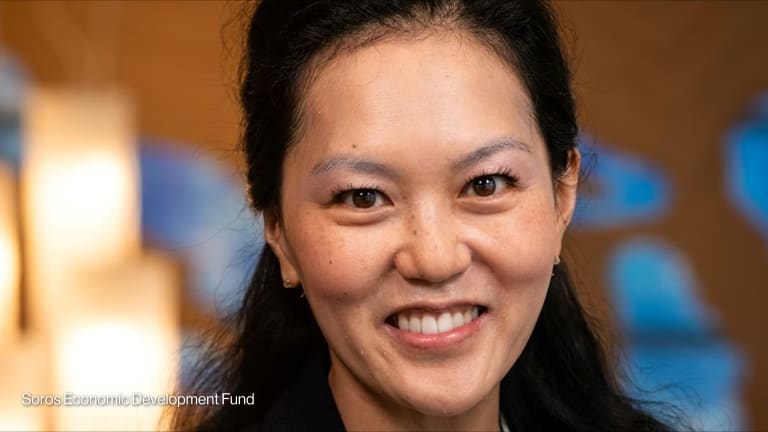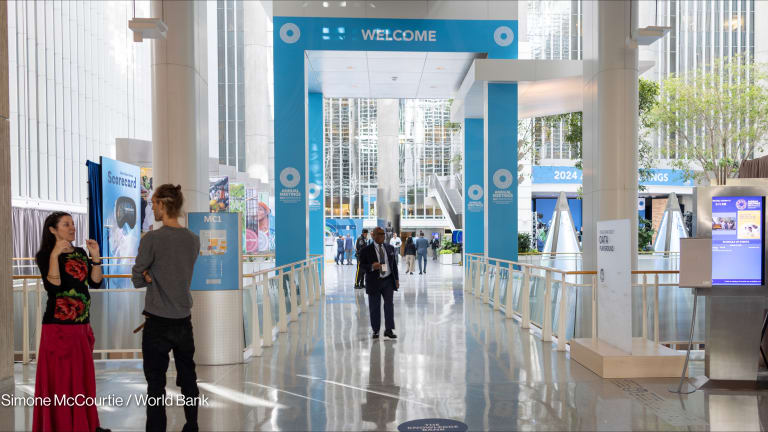Q&A: IFC's Albena Melin on the need for a common understanding of sustainable investment

When world leaders committed to the 2030 sustainable development agenda in 2015, it was widely acknowledged that the Sustainable Development Goals would require new sources of funding and innovative ways to implement that funding. Since then, Albena Melin, the International Finance Corporation's head of global engagements, vice presidency, blended finance and partnerships and senior adviser to the United Nations on SDG financing, said development finance has been redefined.
“Private capital is now at the strategic core of everything that we do,” she said. “This was not so clear when we embarked on these journey three-and-a-half years ago.”
With new players such as the private sector and companies including Unilever and Philips, and new forms of financing, such as impact bonds, green climate bonds and blended finance, there is an emerging consensus around the need for new, more innovative partnerships.
“I think we have to get away from kidding ourselves [that] partnerships are an easy thing to do, because everybody comes into a partnership with their own mandate, their own stories to tell and their own agenda to push,” Melin told Devex.
While collaboration with the private sector is now more commonly accepted, Melin explained there are still challenges in getting the various stakeholders invested and aligned on goals within partnerships.
“The understanding has to be common in order for us to move forward on implementing this challenging 2030 agenda because the task ahead of us is huge and nobody can do it alone. We need business models, government reform, and civil society. We need everybody.”
— Albena Melin, head of blended finance and partnerships, IFC“I think it's important to say that it's not only about business benefit and profit; it's also about achieving development impact and purpose. So profit and purpose go hand in hand; there’s no trade off here.”
Melin also explained how to encourage further private sector collaboration and discussed exactly what’s needed to ensure all parties are aligned in their bid to tackle some of the world’s biggest challenges.
Below are more highlights from the conversation, edited for length and clarity.
When it comes to creating partnerships around innovative financing, what's your advice on finding common ground on sustainable solutions between global and local actors?
We need a lot more information and data. We need to share a lot more with international investors and tell them what the reality on the ground is, because a lot of the risks that international investors see in emerging markets, developing countries and fragile states are perceived risks. There is a difference between a perceived and a real risk. IFC have much better insight into real risks because we have boots on the ground in many countries and we can assess local market conditions in a totally different way.
There is political risk, economic risk, risk of misappropriation. A lot of investors are not sure if a government in a certain country will change, or if there will be a military coup. Nobody can guarantee them the investment they have put in is not going to be either nationalized or misappropriated. They need to have the security that their return will flow back to them if they invest in a country perceived as risky.
Do these risks pose the main obstacle to creating sustainable partnerships for development financing?
See more stories on Going for Goals:
► Opinion: More money alone won't meet SDG 3
► Opinion: How technology is helping India move toward smart service delivery
► Innovative financing for health: Insights from the Grand Challenges Award Repository
► Opinion: High returns await those investing in population health
The risk-return considerations are crucial and they are the main bottleneck to higher and increased investment in specific countries. I think there are a few steps we can take to diminish that risk and help fill that enormous funding gap that exists, in order to meet the challenges of the 2030 agenda.
First, we need a lot more information and data. In a survey done very recently, it was found that most people don’t even know what the SDGs are, and so a lot of countries and governments still need to educate their citizens. We also need more data and information to build a very strong, realistic and evidence-based chain for investing in sustainable development because only by having this data can we convince the private sector and investors what the real risks are and what the perceived risks are.
Secondly, work with governments — like many multilateral development banks and other development finance institutions do — on the policy and regulatory reform agenda. This is critical because long-term investments can only happen if we have the right enabling environment in the countries where we want to attract investment and increase private investment. The sustainable development agenda needs a long-term perspective, and long-term investment will only happen if investors can be assured that their investment will be allowed to work long term in a specific country.
Finally, we need a lot more agreement and harmonization on what we all mean by sustainable investment. A lot of people in the development world talk about sustainable investment, but we don’t have any standards; we don’t have any principles on what constitutes a sustainable investment and what doesn’t. IFC has its own performance standards and they can serve as an aspiration — but we need a global understanding. What do we actually mean by sustainable investment? What does that mean for all of us? What do we want to achieve with it?
So do different definitions of sustainable investment act as a barrier?
I think so because if we don't have standards for our sustainability performance, like IFC does, it’s much more difficult to come to a common understanding. How can you push for the achievement of the SDGs? It would help a lot if we had a much more harmonized understanding on standards of sustainability.
Think of all the different definitions people have of a public-private partnership. It has a contractual agreement at its core, but the minute you mention the word private for funding something that is a public good — a school or a hospital — many people think of privatization. But it can mean private management or private and public money both going into it. So I think the more common understanding we have of these issues — and the realization that private investment is necessary for that — the better. The task ahead of us is huge and nobody can do it alone. We need business models, government reform, civil society. We need everybody.
How could this universal definition be constructed and conveyed so that everybody is on the same page?
I think a universal definition is a high call, but I think different groups of actors can harmonize their definitions. We obviously have different business models, so we need different approaches. Maybe we need 10 understandings, but not 1,000.
Last year, multilateral development banks came together and formed a working group to harmonize our definitions and understanding of what we meant by mobilizing private capital so that we can measure apples with apples and not apples with oranges. I think it would be good if the development community and private investors got together and looked at what the common misunderstandings of the landscape are or how we perceive each other and then we can go on from there. We all want to achieve the same, but it’s really important that we don't mix up the definitions.
At IFC, we believe there is no tradeoff between development impact and financial performance. Profit and purpose go hand in hand and we need long-term financial returns in order to be sustainable. Without that, many will fall in the developing country trap and will not be able to emerge from aid dependency.
We just need to demonstrate it and communicate it better. How do people perceive different things and how do we come together around a common understanding instead of fighting each other?
Over 10 weeks Devex, along with our partners the European Investment Bank, the International Finance Corporation, Philips, and the United Nations Development Programme, will take an in-depth look at the innovative financing mechanisms driving forward the 2030 sustainable development agenda. We’ll explore how the funding gap can be filled, ask how cross-sector collaboration can lead to improved global health care, and look at what it takes to build successful partnerships for change. Join us as we examine the innovative financing powering the Global Goals by tagging #Going4Goals and @devex.
Search for articles
Most Read
- 1
- 2
- 3
- 4
- 5








